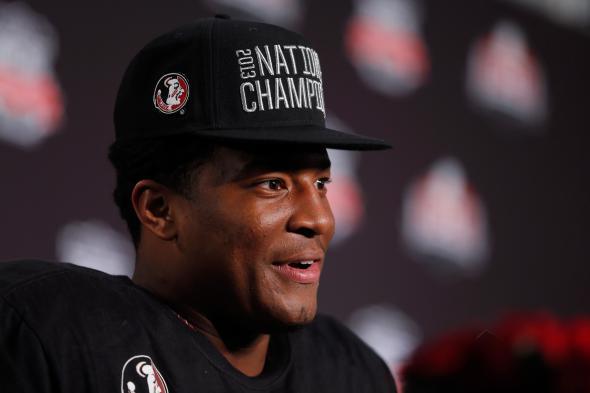Florida State quarterback Jameis Winston’s legal problems may not be behind him. On Thursday, Patricia Carroll, the lawyer for the woman who accused the Heisman Trophy winner of rape said her client plans on suing Winston, along with the university and the Tallahassee Police Department. In December, it was announced that Winston would not face charges for an alleged sexual assault on a fellow Florida State student in Dec. 2012. Winston’s attorney has maintained that the sexual encounter was consensual.
Florida Gov. Rick Scott’s office also released letters written to him from the accuser and her mother on Thursday asking him to reconsider opening an investigation into the case, the Associated Press reports. Carroll has also asked Gov. Scott for an independent examination into how the alleged rape was investigated, but Carroll said Thursday Gov. Scott “didn’t even give us the courtesy of a response.” The handling of the investigation has raised questions over whether the allegations were swept aside due to Winton’s stature as the school’s star quarterback. Here’s more on the controversy on how the case was pursued, via the AP:
At a mid-December news conference, Carroll criticized the way the police investigation was handled, saying that detectives failed to interview key witnesses, used unreliable and incomplete forensic tests and never tested the alleged victim’s blood for the presence of date-rape drugs. Carroll said that her client was “treated like a suspect.” Tallahassee police have defended their handling of the case and Carroll said she received a letter from the department that said an internal affairs investigation found that the case was handled with proper procedures. Carroll has also criticized police for not submitting her client’s sexual assault kit to the Florida Department of Law Enforcement lab until Jan. 17, 2013 — 39 days after it was taken. The attorney questioned whether evidence was properly preserved during those 39 days.
